Your search “Keep%20the%20death%20penalty%abolished%20in%20the%20ePhilippfines%20e%20e%20e%20e%20e%20e%20e%20e%20e%20e/page/www.deathpenaltyindia.com/img/pages/resources/20e17Statistics.pdf ”
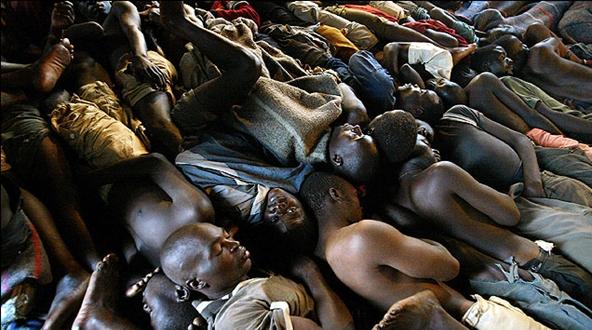
Article(s)
Malawi – five years after abolishing the mandatory death penalty
By Emile Carreau, on 19 September 2012
In 2007 abolitionists celebrated when the High Court of Malawi abolished the mandatory death penalty. In what become known as the Kafanteyeni ruling the mandatory death penalty was deemed by the bench as unconstitutional as it amounts to an arbitrary deprivation of life, denies an accused the right to a fair trial and the right to be free from inhuman and degrading treatment.
2012
Malawi
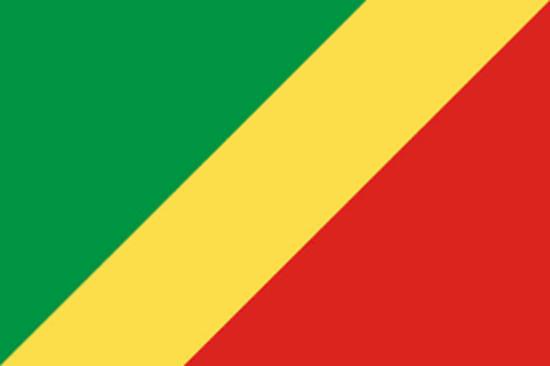
Article(s)
Congo’s Presidential Election Strengthens the Controversial New Constitution that Abolished Capital Punishment
By Delphine Lourtau and Marion Gauer, on 20 April 2016
On March 20, 2016, a tense presidential election in the Republic of the Congo resulted in the re-election of President Denis Sassou Nguesso, who has been in power for a total of 32 years. One of the election’s least discussed outcomes is its solidification of the new constitution that President Sassou introduced last year and that provides for abolition of the death penalty.
2016
Congo
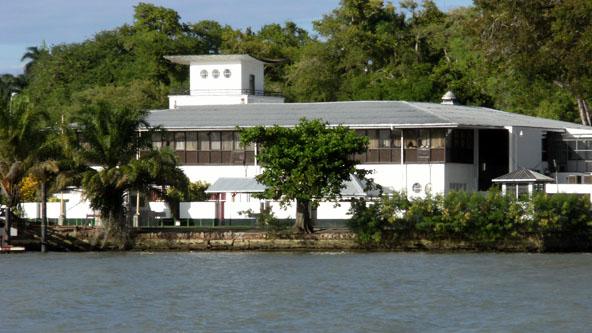
Article(s)
Capital punishment abolished in Suriname
By Parliamentarians for Global Action, on 6 March 2015
The Parliament of Suriname (photo) has abolished the death penalty in law, setting an example for the Greater Caribbean – a major front line in the global fight against capital punishment. World Coalition member organisation Parliamentarians for Global Action provided crucial support for abolition in Suriname.
2015
Suriname
Suriname

Article(s)
Sentenced to death without execution: Why capital punishment has not yet been abolished in the Eastern Caribbean and Barbados
By The death penalty project, on 4 May 2020
Roger Hood and Florence Seemungal with the assistance of Amaya Athill, published a empirical study aims to shed light on why Eastern Caribbean States and Barbados hang on to capital punishment even though they haven’t carried out any executions in the last ten years.
2020
Barbados
Document(s)
Death Penalty in Liberia. When will it be abolished?
By FIACAT, on 1 January 2019
2019
Arguments against the death penalty
More details See the document
The FIACAT and ACAT Liberia organized an awareness-raisingworkshop on 17 and 18 September 2019 in Monrovia (Liberia) for 30 participants: Muslim and Christian religious leaders, traditional chiefs, members of civil society organizations, journalists, members of the Independent National Commissionon Human Rights (INCHR) and parliamentarians. This workshop resulted in the production of this publication to raise awareness among opinion leaders on the abolition of the death penalty in Liberia, considering the specific characteristicsand needs of the country.
- Document type Arguments against the death penalty
Document(s)
Impact of the World Coalition’s Strategic Plan 2018–2022
By World Coalition Agianst the Death Penalty, on 22 August 2023
2023
World Coalition
Trend Towards Abolition
frMore details Download [ pdf - 265 Ko ]
- Document type World Coalition
- Themes list Trend Towards Abolition
- Available languages Impact du Plan stratégique 2018-2022 de la Coalition Mondiale
Document(s)
Poster World Day 2005
By World Coalition against the death penalty , on 10 October 2005
2005
Campaigning
Trend Towards Abolition
frMore details Download [ pdf - 46 Ko ]
To date, 12 African countries have abolished the death penalty for all crimes;
20 retain the death penalty but are no longer carrying out executions; and 21 retain and use
the death penalty. The World Coalition against the death penalty has decided to devote the
World Day 2005 to a campaign to encourage all African countries to abolish capital
punishment permanently.
- Document type Campaigning
- Themes list Trend Towards Abolition
- Available languages Affiche journée mondiale 2005
Document(s)
Death Penalty Politics: The Fragility of Abolition in Asia and the Pacific
By Mark Finnane, Mai Sato and Susan Trevaskes, on 1 September 2022
2022
Academic report
More details See the document
Despite a steady increase worldwide in the number of states that have abolished the death penalty, capital punishment remains a troubling presence in the international order. The world’s leading powers in terms of economics and population include the retentionist states of China, India, Japan and the United States of America (USA). It seems there is no linear path to abolition, and its achievement is indeterminate. Yet, in international human rights law, death penalty abolition is a powerful norm embraced by half the countries across the world. While the majority of death penalty research has emanated from and focuses on the USA, well over 90 per cent of global executions occur in Asia, which lags behind the global trend towards abolishing the death penalty. Our symposium and this collection seek to bring perspectives from a variety of disciplines and methods—historical, legal, sociological, comparative— to bear on the questions of retention and abolition in a variety of jurisdictions and time periods.
This article was first published in Crime Justice Journal: https://www.crimejusticejournal.com/issue/view/119
- Document type Academic report
Document(s)
Politics of International Advocacy Against the Death Penalty: Governments as Anti–Death Penalty Crusaders
By Mai Sato, on 1 September 2022
Academic report
More details See the document
Two-thirds of the countries worldwide have moved away from the death penalty in law or in practice, with global and regional organisations as well as individual governments working towards universal abolition. This article critically examines the narratives of these abolitionist governments that have abolished the death penalty in their country and have adopted the role of ‘moral crusaders’ (Becker 1963) in pursuit of global abolition. In 2018, the Australian Government, while being surrounded by retentionist states in Asia, joined the anti–death penalty enterprise along with the European Union, the United Kingdom and Norway. Using the concepts of ‘moral crusader’ (Becker 1963) and ‘performativity’ (Butler 1993), this article argues that advocacy must be acted on repeatedly for governments to be anti–death penalty advocates. Otherwise, these government efforts serve political ends in appearance but are simply a self-serving form of advocacy in practice.
This article was first published in Crime Justice Journal: https://www.crimejusticejournal.com/issue/view/119
- Document type Academic report
Document(s)
Debunking the deterrence theory
By World coalition against the death penalty, on 9 July 2024
2024
Campaigning
World Coalition
frMore details Download [ pdf - 593 Ko ]
- Document type Campaigning / World Coalition
- Available languages La théorie de la dissuasion démystifiée
Document(s)
Detailed Factsheet 2010
By World Coalition against the death penalty , on 10 October 2010
2010
Campaigning
Trend Towards Abolition
frMore details Download [ pdf - 479 Ko ]
Detailed Factsheet 2010
- Document type Campaigning
- Themes list Trend Towards Abolition
- Available languages Fiche détaillée 2010
FR_KitCitiesForLife_2018-1.pdf
on 8 September 2020
FR_KitCitiesForLife_2018-1.pdf
2020
KitCitiesForLife_2018-1.pdf
on 8 September 2020
KitCitiesForLife_2018-1.pdf
Document(s)
Killing in the Name of God: State-sanctioned Violations of Religious Freedom
By Eleos Justice, Monash University, on 10 November 2021
2021
Academic report
Brunei Darussalam
Iran (Islamic Republic of)
Maldives
Mauritania
Nigeria
Qatar
Saudi Arabia
Somalia
United Arab Emirates
Yemen
More details See the document
As of 2020, blasphemy was formally criminalised in some 84 countries. As many as 21 countries criminalised apostasy as of 2019. The legal penalties for such offences range from fines to imprisonment to corporal punishment—and in at least 12 countries, the death penalty.
This report examines the extent to which States commit, or are complicit in, killings that violate religious freedom. Focussing on the 12 States in which offences against religion are lawfully punishable by death, we examine four different types of State-sanctioned killings on the basis of religious offence (apostasy, blasphemy, or alike) or affiliation (most commonly, membership of a religious minority): judicial executions, extrajudicial killings, killings by civilians, and killings by extremist groups. We explore the relationship between the retention of the death penalty for religious offences and other forms of State-sanctioned killings motivated by alleged religious offending or by religious identity.
- Document type Academic report
- Countries list Brunei Darussalam / Iran (Islamic Republic of) / Maldives / Mauritania / Nigeria / Qatar / Saudi Arabia / Somalia / United Arab Emirates / Yemen
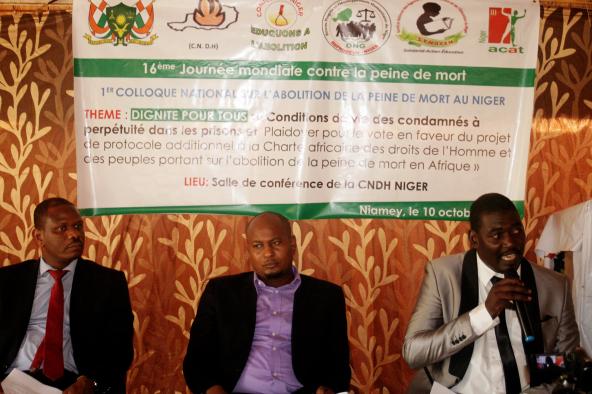
Article(s)
First symposium on the abolition of the death penalty in Niger
By Nigerien Coalition against the Death Penalty, on 17 October 2018
October 10 2018, Niamey, National Human Rights Commission CNDH NIGER. The Nigerien Coalition against the Death Penalty and the Nigerien abolitionist movement in Niger (SYNAFEN, NGO REPRODEVH NIGER, ACAT NIGER) organized the First National Symposium on the Contribution to the Abolition of the Death Penalty in Niger, following the theme “DIGNITY FOR ALL” and entitled: “Living Conditions of those under Life Imprisonment in Niger’s prisons and pleading in favour of Niger’s vote on the draft Additional Protocol to the African Charter on Human and Peoples’ Rights on the Abolition of the Death Penalty in Africa…”, under the sponsorship of the President of the CNDH NIGER Professor KALID IKIRI.
2018
Death Row Conditions
Page(s)
Resources
on 22 June 2020
2020
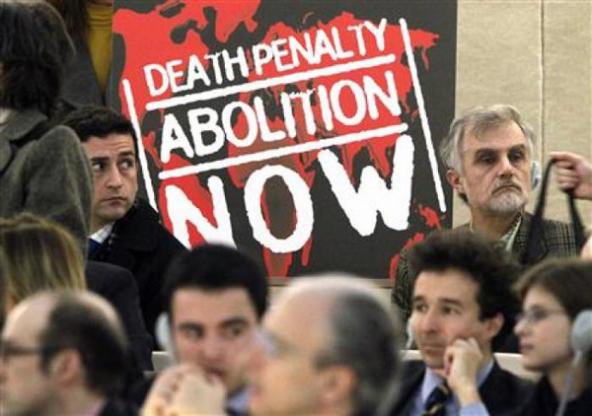
Article(s)
A challenge to the abolitionist movement
By Sandra Babcock, on 16 December 2011
Over the last few decades, we have made great strides toward the universal abolition of the death penalty. Nevertheless, despite the progress we have made, the death penalty remains entrenched in a significant number of states. And even in those nations that have refrained from carrying out executions in a sort of de facto moratorium, […]
2011
Intellectual Disability
Malawi
Mental Illness
Mexico
Moratorium
United States

Article(s)
Justice Denied: A Global Study of Wrongful Death Row Convictions
By Death Penalty Worldwide, on 26 March 2018
The report is a first-of-its-kind comparative study of wrongful convictions. The report illuminates the similarities in wrongful conviction in six countries: Cameroon, Indonesia, Jordan, Malawi, Nigeria, and Pakistan.
2018
Cameroon
Indonesia
Innocence
Jordan
Malawi
Nigeria
Pakistan
Document(s)
Palestine – Committee Against Torture – Death Penalty – June 2022
on 21 July 2022
2022
NGO report
World Coalition
State of Palestine
More details Download [ pdf - 1747 Ko ]
The State of Palestine on 1 April 2014 ratified the Convention against Torture and Other Cruel, Inhuman or Degrading Treatment or Punishment. On 28 December 2017, the State of Palestine signed the Optional Protocol to the Convention against Torture and Other Cruel, Inhuman or Degrading Treatment or Punishment. On 18 March 2019, the State of Palestine also ratified the Second Optional Protocol to the International Covenant on Civil and Political Rights (ICCPR), which aims to abolish the death penalty. The State of Palestine has not yet abolished the death penalty. Indeed-as described herein-the 14 June 2007 split in power between the Palestinian Authority in Ramallah in the West Bank under President Abbas, and the Hamas movement in Gaza, has been followed by many documented executions in Gaza without the requisite signature of President Abbas, and Gazan military courts conduct trials of civilians, where they can be sentenced to death.
This report considers the prevalence of torture and other issues ancillary to the death penalty itself: confessions under torture or degrading treatment, due process, access to legal counsel, death-row conditions, and methods of execution.
- Document type NGO report / World Coalition
- Countries list State of Palestine
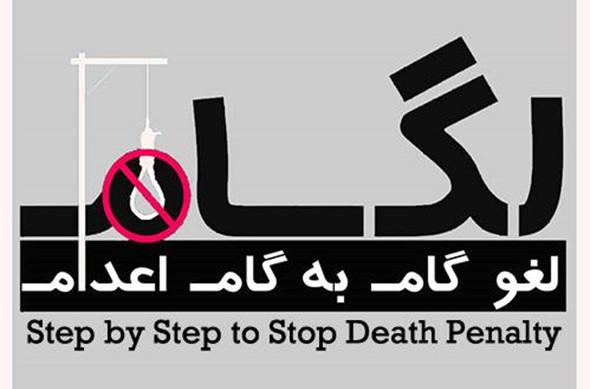
Article(s)
Iran’s brave human rights defenders and their struggle against the death penalty
By Amnesty International, on 5 March 2018
As the world moves away from the death penalty, Iran continues to execute hundreds of people every year and comes second only to China in the number of executions carried out annually. Amnesty International recorded nearly 1,000 executions in Iran in 2015 and at least 567 in 2016.
2018
Iran (Islamic Republic of)
Article(s)
Hands Off Cain holds moratorium conference in Gabon
on 11 December 2007
The Italian-based abolitionist group organised the event in Libreville on December 10, Human Rights Day 2007, with the government of Gabon and financial backing from the Dutch government.
2007
Burundi
Democratic Republic of the Congo
Gabon
Gabon
Mali
Moratorium
Article(s)
Can the US move towards abolition under Obama?
on 20 January 2009
The new president’s nominee for the post of attorney general opposes the death penalty and the number of executions and sentences is falling in the US.
2009
United States
Article(s)
From Italian prisons to Texas death row
on 27 March 2008
A conference held near Naples, Italy last month helped around 200 attendees, most of them secondary school students, understand the death penalty situation in the US and relate it to prison issues in their own country.
2008
Death Row Conditions
Italy
United States
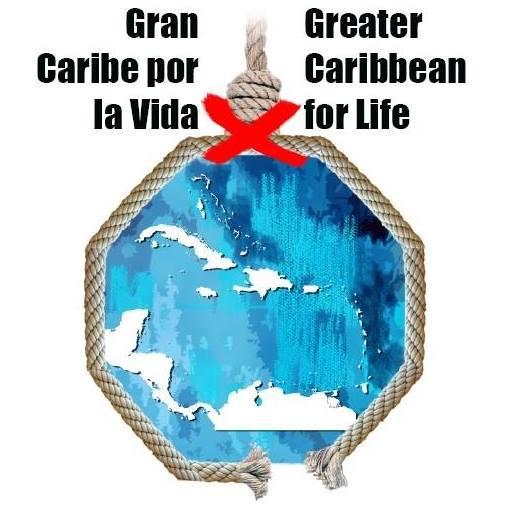
Article(s)
10 years with no hanging in the Caribbean
By Greater Caribbean for Life, on 19 December 2018
The Greater Caribbean for Life (GCL) notes that 19 December, 2018 marks the 10th anniversary of the hanging of Charles la Place in St Kitts and Nevis. He was the last person who was hanged in the English-speaking Caribbean.
2018
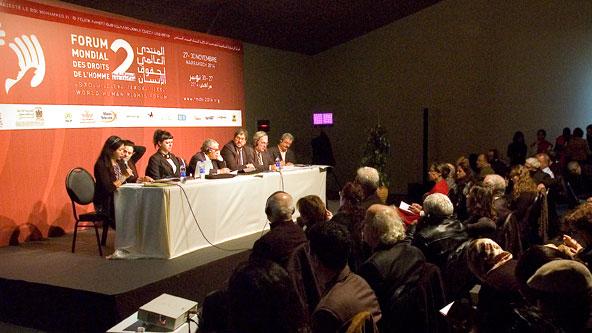
Article(s)
Morocco’s death penalty takes centre stage at Marrakesh forum
By Thomas Hubert (in Marrakesh, Morocco), on 28 November 2014
Debates on the abolition of the death penalty at the World Human Rights Forum have highlighted the situation in the host country among the major fronts in the abolitionist struggle.
2014
Morocco
Article(s)
What now for Mumia?
on 28 April 2008
On 27 March, a US federal appeals court overturned Mumia Abu-Jamal’s death sentence, but not his conviction for murder. His lead counsel Robert R. Bryan gives his reaction to the ruling and the next steps in America’s most high-profile capital case.
2008
Fair Trial
United States
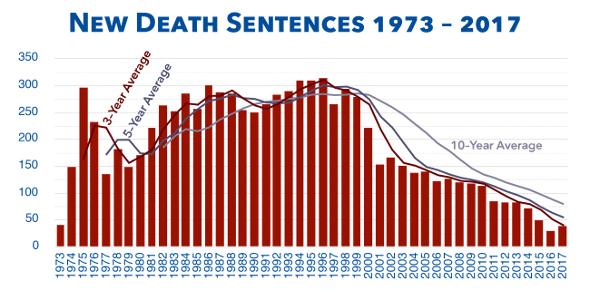
Article(s)
U.S. sees second fewest death sentences and executions in 25 Years
By Death Penalty Information Center, on 22 March 2018
Public support for the death penalty drops to 45-Year low as four More death-row prisoners Exonerated in 2017. “The Death Penalty in 2017: Year End Report” is now available.
2018
United States
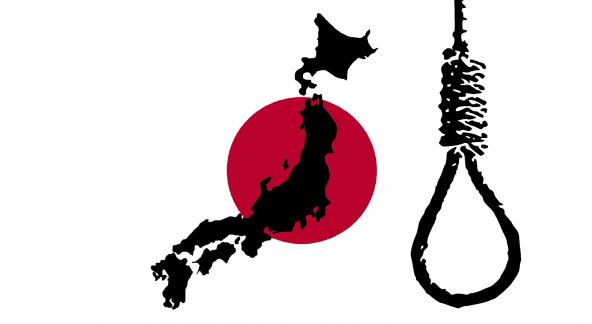
Article(s)
Regarding the execution in Japan of seven people
By World Coalition Against the Death Penalty, on 10 July 2018
STATEMENT – WORLD COALITION AGAINST THE DEATH PENALTY The World Coalition Against the Death Penalty would like to express its sympathy and support to all courageous anti-death penalty activists who have fought bravely to try to prevent the executions of seven people in Japan on the same day, on 6 July. The World Coalition calls […]
2018
Japan

Article(s)
Experts analyse the relationship between poverty and the death penalty
By Dr. Lina M. Torres Rivera, on 18 June 2018
The International Studies Programme Overseas Relations Assembly and the Institute for Human Rights Research and Promotion (INIPRODEH) organised a forum: The Death Penalty and Poverty on the 89th anniversary of abolition of the death penalty in Puerto Rico. Eminent figures from the abolitionist movement and academia reviewed and analysed research into this issue.
2018
Puerto Rico

Article(s)
Progress and impediments on path to abolition in U.S.
By Russ Feingold & Christopher Wright Durocher, on 3 April 2024
When President Biden won the 2020 election, he became the first successful U.S. presidential candidate to publicly oppose the death penalty.
2024
United States
Document(s)
Death in the time of Covid-19: Efforts to restore the death penalty in the Philippines
By Jose M.Jose and Maria Corazon A.De Ungria, on 10 August 2021
2021
Academic report
Drug Offenses
Philippines
More details See the document
The Philippine Congress recently passed a bill amending the Dangerous Drugs Act of 2002 and reimposing the penalty of life imprisonment to death for specific-drug related offenses. House Bill No. 7814 also allows the presumption of guilt in certain drug-related crimes unless otherwise proven, thereby overturning the long-standing constitutional presumption of innocence.
The bill has been sent to the Senate for its concurrence and could only be several steps away before being signed into law by President Rodrigo R. Duterte. This paper discusses the ramifications of the new bill and the questioned timeliness of its passage when the country continues to have a large and overcrowded prison population and a significant number of deaths due to SARS-CoV-2 in Southeast Asia.
The government’s lapses in following the 2021 national vaccination plan became apparent in the 31 March 2021 assessment made by the congressional health panel on the government’s response to the pandemic.
From the authors’ perspective, the urgency of using the country’s limited resources to help medical frontliners and local government units prevent further infections and save lives should have outweighed the efforts exerted to pass a law that legalized the death penalty for the third time in the Philippines.
- Document type Academic report
- Countries list Philippines
- Themes list Drug Offenses

Member(s)
American Friends Service Committee
on 30 April 2020
The American Friends Service Committee (AFSC) carries out service, development, social justice and peace programs throughout the world. It was founded by Quakers during World War 1 to provide conscientious objectors with an opportunity to aid civilian war victims. The AFSC’s work is based on the Quaker belief in the worth of every person, and […]
2020
United States
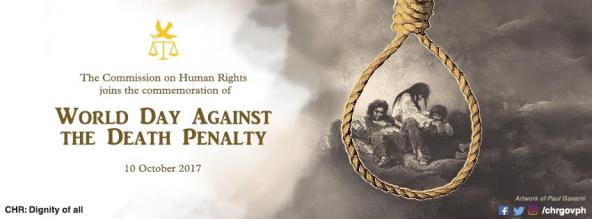
Article(s)
The Commission on Human Rights of the Philippines launches a campaign against the reinstatement of the death penalty in the country
By Thalia Gerzso, on 26 October 2017
Despite its national and international commitment not to carry out any executions, Philippines is taking worrying measures toward the reinstatement of the death penalty for drug offenses. Determined to thwart the government’s plan, the Commission on Human Rights of the Philippines has taken various actions, including an awareness campaign for the 15th World Day Against the Death Penalty.
2017
Philippines
Public Opinion
Article(s)
30 countries gather in Rome to oppose capital punishment
on 21 May 2010
17 ministers and numerous experts met in Rome on May 17 to discuss crime-busting policies that reject the death penalty. Representatives for the Republic of Congo and Burkina Faso pledged their support for abolition.
2010
Italy
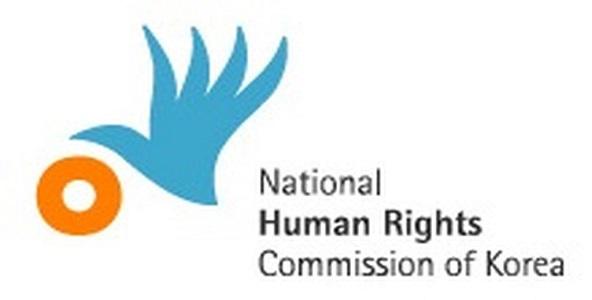
Article(s)
After more than 20 years without executions, a trend toward an official moratorium?
By Clémentine Etienne, on 27 June 2018
On 18 June 2018, the Korean National Human Rights Commission (NHRC) called on the South Korean President to declare an official moratorium on the death penalty to mark the 70th anniversary of the Universal Declaration of Human Rights on December 10.
2018
Republic of Korea
Article(s)
Campaigners and political leaders unite against the death penalty
on 24 February 2010
Representatives from 56 abolitionist and retentionist countries attended the opening session of the World Congress Against the Death Penalty in Geneva.
2010
Belarus
France
Italy
Mongolia
Norway
Qatar
Senegal
Spain
Switzerland
Viet Nam
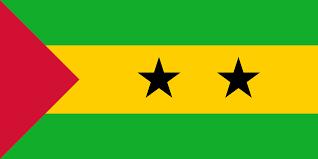
Article(s)
São Tomé and Príncipe ratifies OP2 and approves total and definitive abolition of the death penalty
By Elise Guillot, on 18 January 2017
On 10 January 2017, São Tomé and Príncipe ratified the Second Optional Protocol to the International Covenant on Civil and Political Rights, aiming at the abolition of the death penalty and became its 84th State party.
2017
Sao Tome and Principe
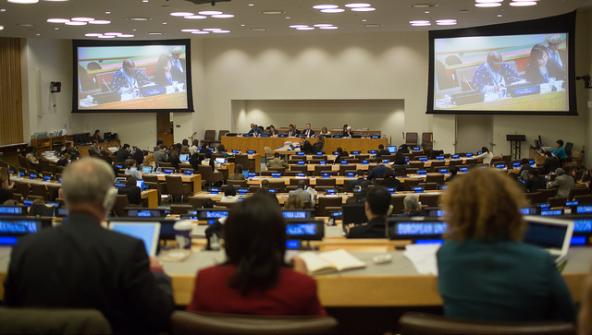
Article(s)
Call for Moratorium on Executions Gains Record-High Support at Committee Vote
By Amnesty International & Comunità di Sant'Egidio, on 16 November 2018
Today the international community offered unprecedented support to a UN call to halt executions when the Third Committee of the UN General Assembly considered a draft resolution on a moratorium on the use of the death penalty.
2018
Moratorium

Article(s)
Second Optional Protocol: Frequently Asked Questions
By Pierre Desert, on 27 June 2008
What is it? How is it implemented? You will find the answers to the most frequently asked questions about the Second Optional Protocol below.
2008
Article(s)
Mali: is abolition in sight?
on 4 June 2008
With public meetings, football matches and media action Malian activists have been covering all bases to try to push through adoption of a law abolishing the death penalty before the end of the parliamentary session.
2008
Innocence
Mali
Mali
Moratorium

Article(s)
Marc Bossuyt: “Countries that have not signed up to the Protocol should feel isolated”
By Pierre Désert, on 27 June 2008
Marc Bossuyt was UN Special Rapporteur for drawing up the Second Optional Protocol to the International Covenant on Civil and Political Rights. He is now president of Belgium’s Constitutional Court.
2008
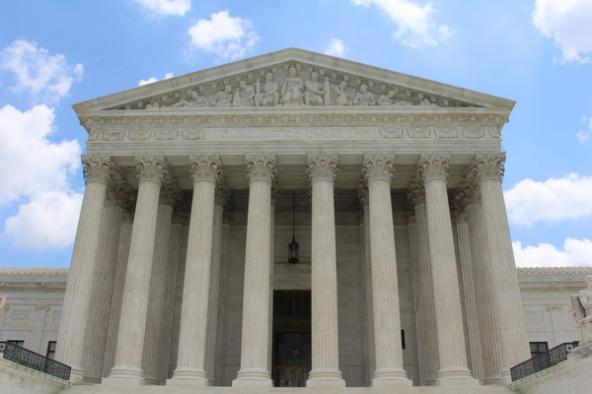
Article(s)
US Federal Executions Resume
By Louis Linel, on 28 July 2020
It has been 17 years since the United States decided on a de facto moratorium on federal executions, which can be carried out only for certain federal criminal offences. This moratorium, however, ended in July.
2020
Moratorium
United States
Article(s)
Benin on track to achieve abolition
on 7 February 2010
Benin’s President Thomas Yayi Boni, one of the World Congress’s guests, has asked the parliament to enshrine the abolition of the death penalty in the constitution. Justice Minister Victor Tokpanou details Benin’s path to abolition.
2010
Benin
Benin
Public Opinion
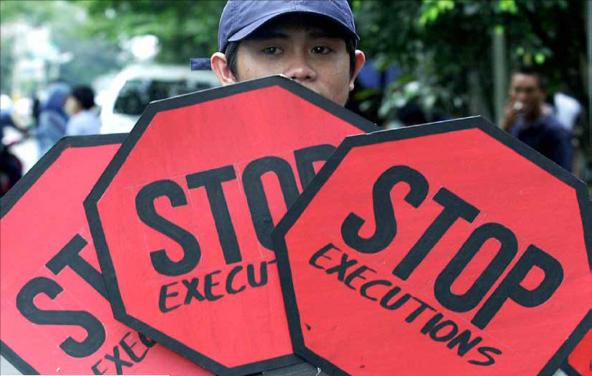
Article(s)
ASEAN countries step back on the path towards abolition
By Tiziana Trotta, on 27 October 2016
Asia has the highest number of retentionist countries in the world. Eight members of the Association of Southeast Asian Nations (ASEAN) retain the death penalty and four of them carried out executions in 2015.
2016
Drug Offenses
Terrorism
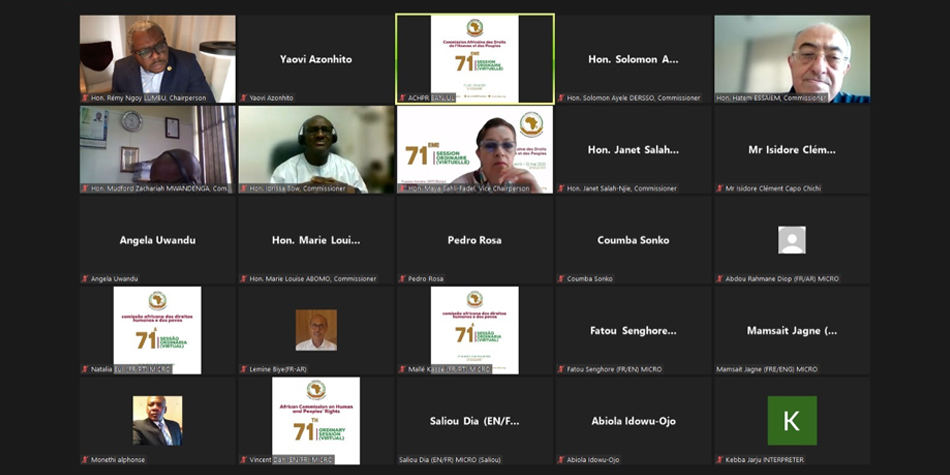
Article(s)
71st Ordinary session of the African Commission: focus on torture and the death penalty
By Sarah Saint-Sorny, on 9 June 2022
The African Commission on Human Rights and People (ACHPR) once again met on Zoom for its 71st Ordinary session from April 21st to May 13th, 2022. The honorable Rémy Ngoy Lumbu, President of the Commission, has expressed his hopes for the next session to take place in person in Banjul this autumn.
2022
Central African Republic
Congo
Democratic Republic of the Congo
Kenya
Malawi
Mauritania
Niger
Nigeria
Sierra Leone
Tunisia
Zambia
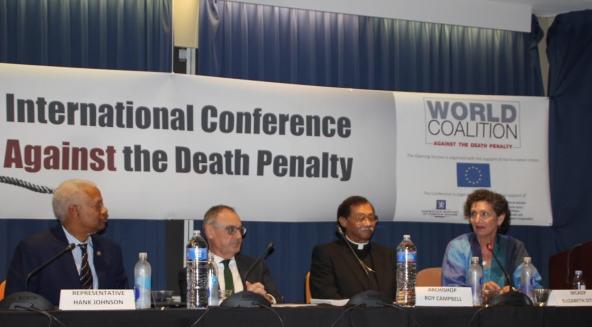
Article(s)
International Conference Against the Death Penalty: abolistionists are united and determined
By Lorène du Crest, on 18 July 2017
The World Coalition Against the Death Penalty celebrated its 15th anniversary with an International Conference and its General Assembly on 22-24 June in Washington DC.
2017
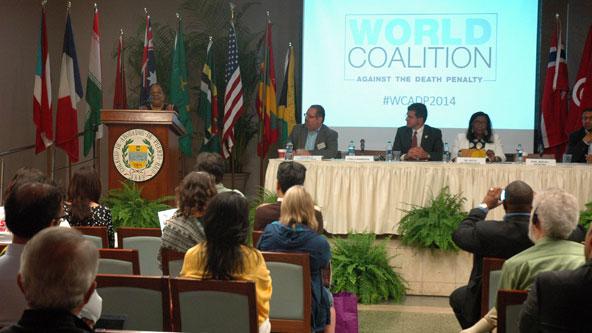
Article(s)
World Coalition raises mental health issues in administration of the death penalty
By Thomas Hubert (in San Juan, Puerto Rico), on 22 June 2014
World abolitionists gathered in Puerto Rico between 20-22 June to take stock on progress in the crucial Caribbean region and prepare for the next round of the fight against the death penalty.
2014
Puerto Rico
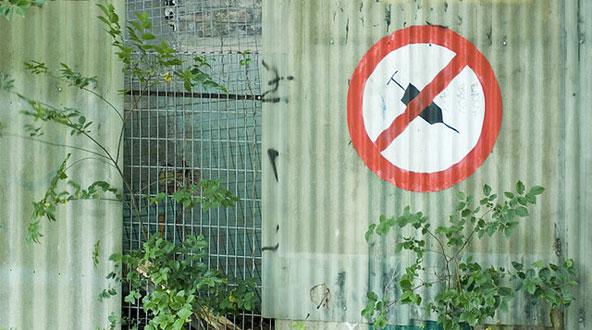
Article(s)
The shared responsibility of capital punishment
on 27 September 2011
Everyone agrees that the highest international standards should apply in the fight against drug. But what about the standards used in punishing traffickers- and the inappropriate use of the death penalty against such criminals?
2011
Australia
Bhutan
Colombia
Drug Offenses
Indonesia
Italy
Mozambique
Nepal
Niue
Pakistan
Philippines
South Africa
State of Palestine
Sweden
Taiwan
Terrorism
Thailand

Article(s)
Philippines: one step forward in the reintroduction of the death penalty
By Lorène du Crest, on 3 March 2017
The Philippines are a step closer to the reintroduction of the death penalty, violating their international obligations.
2017
Drug Offenses
Philippines

Article(s)
Statement delivered to ACHPR on its 68th Ordinary Session
By FIACAT, FIDH, WCADP, Avocats Sans Frontières, COJESKI-RDC, ECPM, RAL and Reprieve, on 12 May 2021
Oral statement on behalf of FIACAT, FIDH, World Coalition against the Death Penalty, ECPM, Avocats sans frontières, COJESKI-RDC, ECPM, RAL and Reprieve on the activities of the Members of the Commission and the Special Mechanisms.
2021
Cruel, Inhuman and Degrading Treatment and Punishment
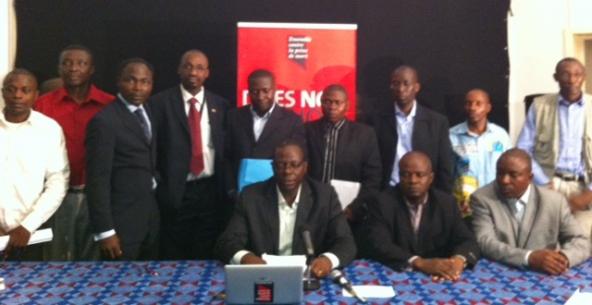
Article(s)
Abolitionists of Central Africa met in Kinshasa
By Amina Jacquemin with CPJ and ECPM, on 12 April 2012
ECPM (Together against the death penalty) and CPJ (Culture for Peace and Justice) organized a conference in late March on strategies for abolition at the regional level. The Congolese government has reaffirmed its commitment to abolish the death penalty.
2012
Burundi
Cameroon
Central African Republic
Chad
Congo
Democratic Republic of the Congo
Kenya
Uganda
United Republic of Tanzania
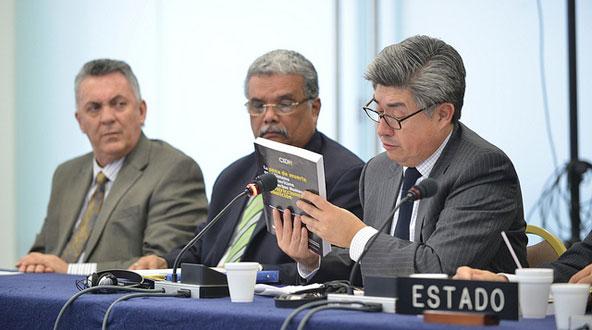
Article(s)
Organisation of American States considers moratorium
By Tiziana Trotta, on 15 March 2013
The Inter-American Commission on Human Rights warns that litigation is insufficient to combat the death penalty.
2013
Argentina
Brazil
Costa Rica
Cuba
Dominican Republic
Ecuador
Guatemala
Mexico
Moratorium
Panama
Suriname
Trinidad and Tobago
United States
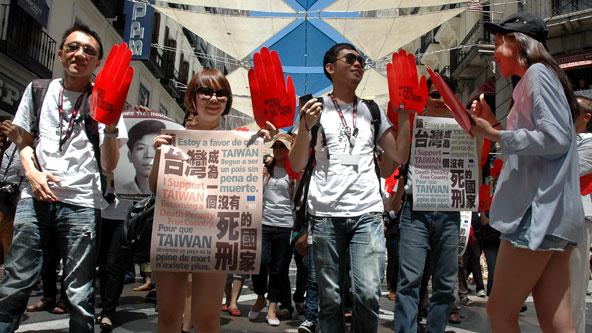
Article(s)
Asian progress paves the way for new strategies
By Thomas Hubert, on 20 June 2013
Although most executions continue to take place in Asia, their number is going down – and abolitionists are coming up with new ideas to bring about abolition.
2013
India
Japan
Malaysia
Mongolia
Moratorium
Singapore
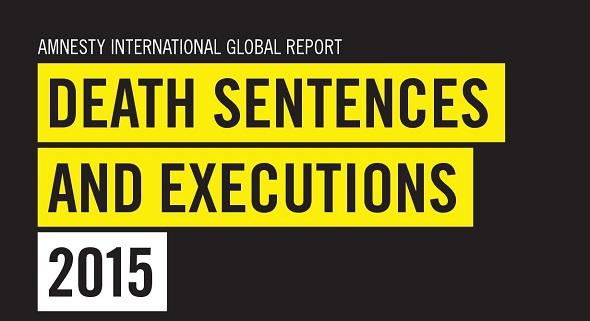
Article(s)
Death sentences and executions in 2015
By Amnesty International, on 10 April 2016
This report covers the judicial use of the death penalty for the period January to December 2015. As in previous years, information is collected from a variety of sources, including: official figures; information from individuals sentenced to death and their families and representatives; reporting by other civil society organizations; and media reports. Amnesty International reports only on executions, death sentences and other aspects of the use of the death penalty, such as commutations and exonerations, where there is reasonable confirmation.
2016
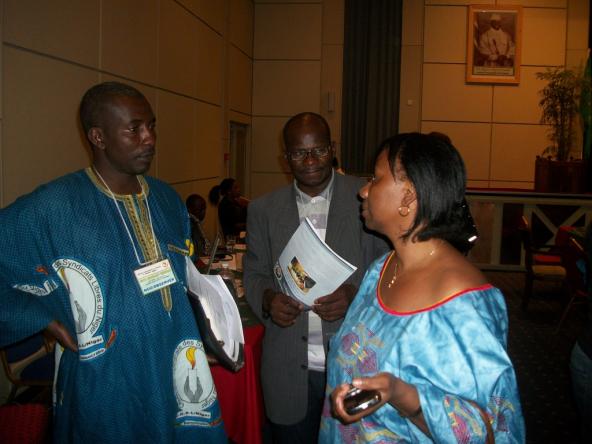
Article(s)
African human rights body targets death penalty
on 16 May 2011
The abolition of the capital punishment figured prominently at the 49th session of the African Commission of Human and People’s Rights.
2011
Algeria
Botswana
Democratic Republic of the Congo
Equatorial Guinea
Mauritania
Public Opinion
Somalia
Sudan

Helping the World Achieve a Moratorium on Executions
on 20 December 2022
In 2007, the World Coalition made one of the most important decisions in its young history: to support the Resolution of the United Nations General Assembly for a moratorium on the use of the death penalty as a step towards universal abolition. A moratorium is temporary suspension of executions and, more rarely, of death sentences. […]
2022
Moratorium

18th World Day Against the Death Penalty: Access to Counsel – A Matter of Life or Death
on 18 September 2020
Without access to effective legal representation during arrest, detention, trial and post-trial, due process cannot be guaranteed. In a capital case, the consequences that can arise from a lack of effective legal representation can be nothing less than the difference between life and death. On the national and international levels, the right to legal representation […]
2020
Public Opinion
Page(s)
What is the Risk that the Death Penalty Will Return in Your Country?
on 20 August 2021
This interactive tool will allow you to identify the threat levels of the resurgence of the death penalty in your country. It is based on key indicators drawn from the experience of the World Coalition’s pilot project in three countries: the Maldives, the Philippines and Turkey from 2018 to 2021.
2021

Article(s)
Call for tenders for an external final evaluation
By World Coalition Against the Death Penalty, on 15 June 2021
External Evaluation of the project “Preventing the risk of resurgence of the death penalty in three abolitionist countries” of 36 months in the Maldives, Philippines and Turkey
2021
Maldives
Philippines
Turkey
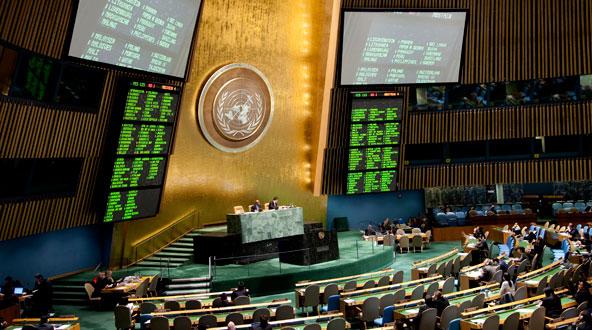
Article(s)
How to work with international bodies?
By Maria Donatelli, on 10 June 2013
The World Coalition is taking part in a workshop on mutual work relationships between international organisations and civil society at the 5th World Congress Against the Death Penalty. Here are tips for activists who would like to work with UN and regional bodies.
2013
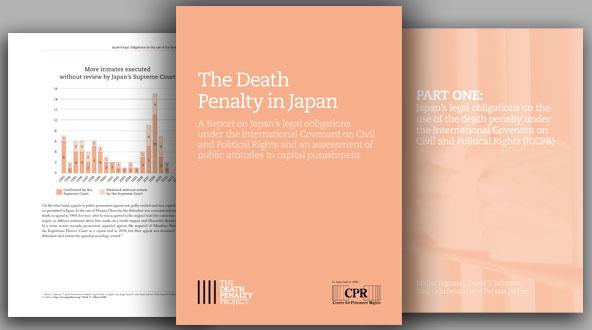
Article(s)
Japan in breach of international standards, opinion wavering – study
By Thomas Hubert, on 14 March 2013
A report published by the Death Penalty Project and the Center for Prisoners’ Rights shows that Japanese law and practice on capital punishment violate international treaties, and questions the high level of public support for the death penalty reported by the authorities.
2013
Japan
Public Opinion
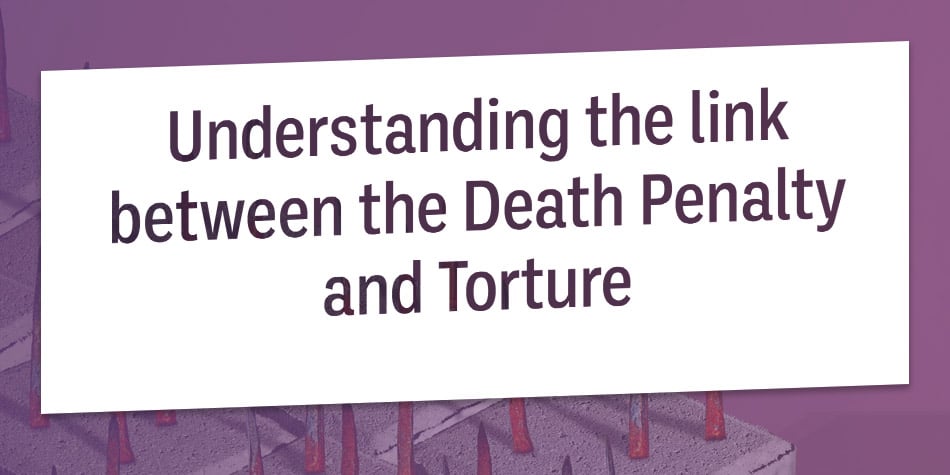
Article(s)
International Day in Support of Victims of Torture: Understanding the link between the Death Penalty and Torture
By Wendy Adouki, on 26 June 2023
Today, 26th June 2023, the world is commemorating the International Day in Support of Victims of Torture (International Day). Started in 1987, this International Day began when the United Nations Convention Against Torture and Other Cruel, Inhuman or Degrading Treatment or Punishment (UN Convention Against Torture) came into force; a crucial legal text to combat […]
2023
Cruel, Inhuman and Degrading Treatment and Punishment
Death Row Conditions
Document(s)
2021 OHCHR Report on Deterrence: High-level panel discussion on the question of the death penalty
By Office of the High Commissioner for Human Rights (OHCHR), on 14 January 2022
2022
United Nations report
Public Opinion
aresfrruzh-hantMore details See the document
The present report is submitted pursuant to Human Rights Council resolutions 26/2 and 42/24. It provides a summary of the high-level panel discussion on the question of the death penalty held on 23 February 2021 at the forty-sixth session of the Council. The panel discussion addressed the human rights violations related to the use of the death penalty, in particular with respect to whether the use of the death penalty has a deterrent effect on crime rates.
- Document type United Nations report
- Themes list Public Opinion
- Available languages حلقة نقاش رف عة المستوى بشأن مسألة عقوبة الإعدامInforme de la OACDH 2021 sobre el efecto disuasorio : Mesa redonda de alto nivel sobre la cuestión de la pena de muerteRapport HCDH 2021 sur l'effet dissuasif : Réunion-débat de haut niveau sur la question de la peine de mortОбсуждение в рамках дискуссионной группы высокого уровня вопроса о смертной казни,способствует ли ее применение сдерживанию преступности2021年联合国威慑效应报告 - 关于死刑问题的高级别专题小组讨论会
Article(s)
US Supreme Court revives “failed” death penalty
on 17 April 2008
The World Coalition condemns the April 16th decision of the United States Supreme Court upholding the lethal injection as a humane method of executing a human being.
2008
Moratorium
United States
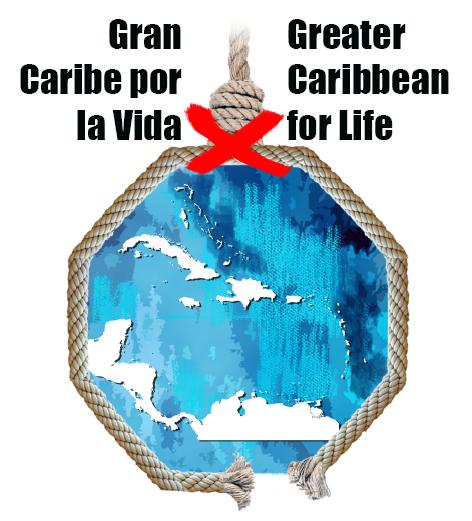
Article(s)
The Greater Caribbean for Life rejects the call for the resumption of the death penalty
By Leela Ramdeen, on 9 November 2017
The Greater Caribbean for Life (GCL), an independent, not-for-profit regional civil society organization working towards the abolition of the Death Penalty in the region, rejects the recommendation for the resumption of the death penalty.
2017

Article(s)
Amnesty 2010 stats: retentionist countries increasingly isolated
on 28 March 2011
Countries which continue to use the death penalty are being left increasingly isolated following a decade of progress towards abolition, Amnesty International has said in its new report Death Sentences and Executions in 2010.
2011
China
Drug Offenses
Egypt
Fair Trial
Indonesia
Iran (Islamic Republic of)
Juveniles
Lao People's Democratic Republic
Libya
Malaysia
Moratorium
Pakistan
Sudan
Thailand
United Arab Emirates
United States
Yemen
Article(s)
Algerian MPs want to abolish the death penalty
on 9 December 2008
A group of Algerian parliamentarians has filed a bill aimed at abolishing capital punishment. The World Coalition supports their campaign to have the proposed legislation passed.
2008
Algeria
Moratorium

Article(s)
Abolition of the death penalty must be an integral part of crime prevention programmes and criminal justice reforms
By Amnesty International, on 5 March 2021
As the Fourteenth United Nations Congress on Crime Prevention and Criminal Justice is about to begin in Kyoto, Japan, the undersigned organizations urge the Economic and Social Council (ECOSOC) and its subsidiary bodies, including the UN Office on Drugs and Crime (UNODC); and all UN member states, including the Congress host country Japan, to make […]
2021
Public Opinion
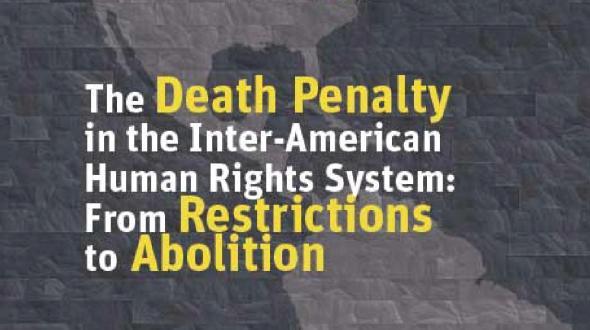
Article(s)
From restrictions to abolition
By World Coalition Against the Death Penalty, on 17 August 2012
The Inter-American Commission on Human Rights has published a new report and called for abolition of the death penalty.
2012
Antigua and Barbuda
Argentina
Bahamas
Barbados
Belize
Bolivia (Plurinational State of)
Brazil
Canada
Chile
Colombia
Costa Rica
Cuba
Dominica
Dominican Republic
Ecuador
El Salvador
Grenada
Guatemala
Guyana
Haiti
Honduras
Jamaica
Mexico
Nicaragua
Panama
Paraguay
Peru
Saint Kitts and Nevis
Saint Lucia
Saint Vincent and the Grenadines
Trinidad and Tobago
United States
Uruguay
Venezuela (Bolivarian Republic of)
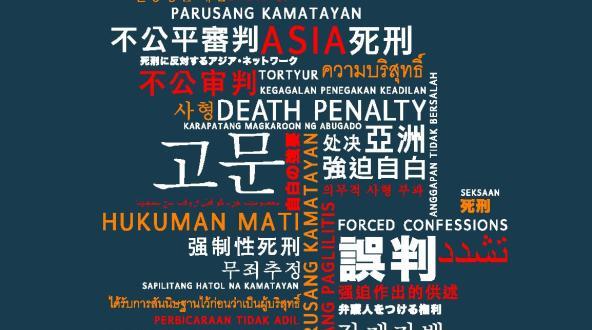
Article(s)
Asia: Stop executions and unfair trials
By ADPAN, on 6 December 2011
A hard-line group of Asian countries are defying the global trend against the death penalty and putting to death thousands of people after unfair trials every year, the Anti-Death Penalty Asia Network (ADPAN) said today in a new report.
2011
Article(s)
800 cities light up for life
on 17 November 2008
On November 30, monuments in nearly 800 cities across the globe will light up to celebrate “Cities for Life – Cities Against the Death Penalty”.
2008
Italy
Public Opinion
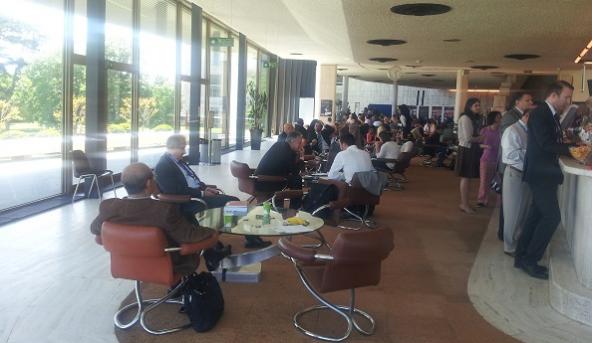
Article(s)
Abolitionist NGOs lobby to educate UN member states in Geneva
By Aurélie Plaçais, on 22 April 2015
Several World Coalition members carried out intense advocacy activities during and after the March session of the Human Rights Council to prepare for the coming UPR session, during which Liberia, Malawi and the USA will be examined.
2015
Document(s)
Ambivalent Abolitionism in the 1920s: New South Wales, Australia
By Carolyn Strange, on 1 September 2022
2022
Academic report
Australia
More details See the document
In the former penal colony of New South Wales (NSW), a Labor government attempted what its counterpart in Queensland had achieved in 1922: the abolition of the death penalty. Although NSW’s unelected Legislative Council scuttled Labor’s 1925 bill, the party’s prevarication over capital punishment and the government’s poor management of the campaign thwarted abolition for a further three decades. However, NSW’s failure must be analysed in light of ambivalent abolitionism that prevailed in Britain and the US in the postwar decade. In this wider context, Queensland, rather than NSW, was the abolitionist outlier.
This article was first published in Crime Justice Journal: https://www.crimejusticejournal.com/issue/view/119
- Document type Academic report
- Countries list Australia
Article(s)
A World Without the Death Penalty – IX Congress of the Ministers of Justice
By Federica Merenda, on 29 February 2016
On 22 February 2016, the representatives of more than twenty countries gathered in Rome for the 9th International Congress of the Ministers of Justice « A World without the death penalty », organized by the Community of Sant’Egidio and hosted by the Italian Chamber of Deputies. Burundi, Cambodia, Central African Republic, Congo, El Salvador, Guinea Conakry, Cȏte d’Ivoire, Mali, Mongolia, Rwanda, Somalia, Sri Lanka, South Africa, Timor-Leste, Togo, Uganda, Viet Nam, Zimbabwe are the countries who joined Italy in the last edition of this annual conference.
2016
Document(s)
UN Special Procedures toolkit – World Day 2022
By FIACAT and the World Coalition Against the Death Penalty, on 26 September 2022
2022
World Coalition
frMore details Download [ pdf - 335 Ko ]
There are several ways in which individuals and non-governmental organizations (NGOs) can work with the UN to report human rights violations. One way is through the special procedures of the UN Human Rights Council (HRC). Find out how to work with them here.
- Document type World Coalition
- Available languages Travailler avec les Procédures spéciales des Nations unies - Journée mondiale 2022
Document(s)
Ethiopia – Committee Against Torture (LOI) – Death Penalty – June 2022
on 21 July 2022
2022
NGO report
World Coalition
Ethiopia
More details Download [ pdf - 1447 Ko ]
This report addresses Ethiopia’s compliance with its human rights obligations with regard to the death penalty. Although there are currently at least 147 people on death row in Ethiopia, the country has not carried out any executions during the reporting period and has also pardoned and released 41 additional death row inmates since that time.[1] The Federal Supreme Court of Ethiopia has also issued sentencing guidelines that purport to further reduce the likelihood of persons being sentenced to death as a punishment for their crimes.[2] Nonetheless, Ethiopia has not taken concrete steps to reduce the number of crimes eligible for the death penalty, and the use of torture and other due process violations related to judicial proceedings render all death sentences arbitrary.
- Document type NGO report / World Coalition
- Countries list Ethiopia

Article(s)
Lindy Lou Juror #2
By Clémentine Etienne, on 31 July 2018
On the occasion of the screening of the movie Lindy Lou Juror number 2 on Monday 25 June 2018, abolitionist associations such as Amnesty International, ACAT France, Together Against The Death Penalty French Collectif Free Mumia! and the World Coalition against the Death Penalty met at the Centre Wallonie Bruxelles in Paris.
2018
Public Opinion
United States
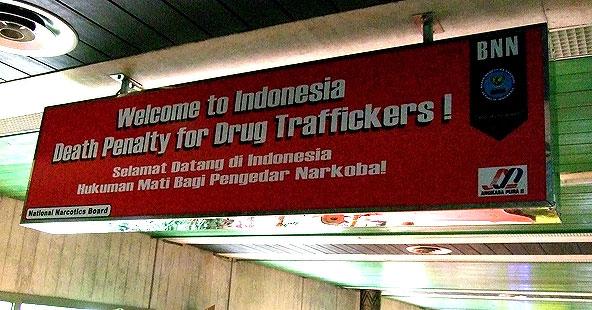
Article(s)
Indonesia: execution for drug crimes is no solution
By World Coalition Against the Death Penalty, on 26 January 2015
In an open letter, the World Coalition and its members, including KONTRAS and Amnesty International, condemn the Indonesian government’s politicizing of the death penalty to show its commitment to eradicating drug-related crimes. Recent resumptions of executions show one thing, they are carried out for political reasons only: in Pakistan to show that it is tough on terrorism, Jordan that it tough on crime and Indonesia that it is tough on drugs. Instead, those states should abolish the death penalty to show their commitment to upholding human rights. The next World Day against the Death Penalty will be dedicated to the issue of capital drug crimes.
2015
Drug Offenses
Indonesia
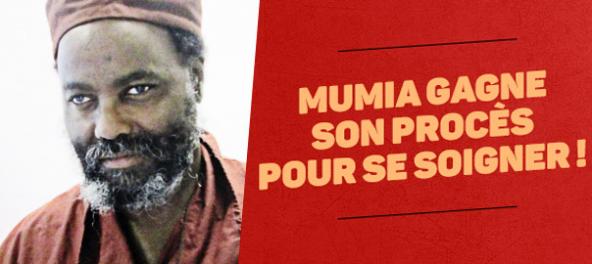
Article(s)
Federal Justice orders the prison administration to immediately provide African-American journalist Mumia Abu-Jamal with treatment
By French Collective "Free Mumia", on 18 January 2017
On the 3rd January of this year, a Federal judge ordered Pennsylvania’s prison administration to immediately provide Mumia Abu-Jamal with medication to treat his hepatitis C infection, justifying his decision in these terms: “budgetary constraints cannot outweigh the Eighth Amendment’s constitutional guarantee of adequate medical care.”
2017
Cruel, Inhuman and Degrading Treatment and Punishment
United States
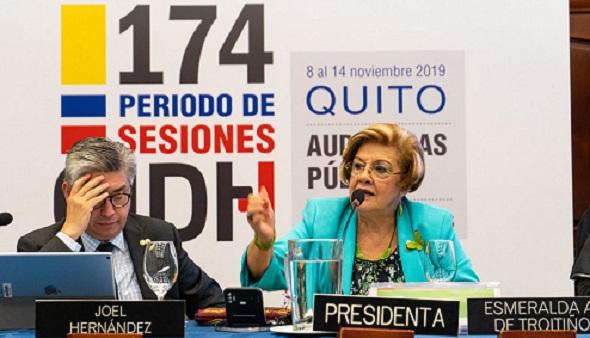
Article(s)
The Inter-American system commits to see the end of the death penalty
By World Coalition Against the Death Penalty, on 13 January 2020
In November 2019, Ecuador hosted a series of high level meetings of the Organisation of American States (OAS), including the Third Forum of the Inter-American Human Rights System and the 174th Period of Sessions of the Inter-American Commission on Human Rights (IACHR), during which abolition of the death penalty was on the agenda.
2020

Article(s)
Ten films to expose innocence on death row
By Laura Shacham - One for Ten, on 29 April 2013
One For Ten is a series of short documentary films telling the stories of innocent people who were on death row in the United States, with support from the World Coalition and several of its members.
2013
Innocence
United States
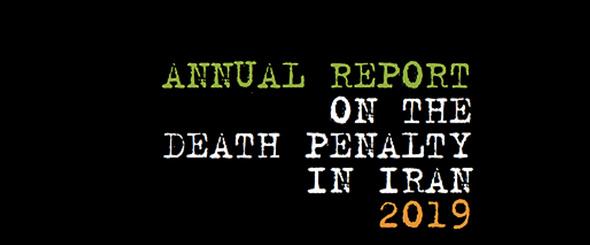
Article(s)
Iran: Annual report on the death penalty 2019
By Iran Human rights and ECMP (Together Against the Death Penalty), on 4 May 2020
Iran Human Rights (IHR) and ECPM (Together Against the Death Penalty) published its 12th report on 31 march 2020. The report provides an assessment and analysis of the death penalty trends in 2019 in the Islamic Republic of Iran.
2020
Iran (Islamic Republic of)
Article(s)
Research Assistant
By Death Penalty Worldwide, Cornell Law School and World Coalition Against the Death Penalty, on 8 February 2016
Death Penalty Worldwide of Cornell University Law School and the World Coalition Against the Death Penalty invite applications for a five-month internship placement in Paris from March to July 2016.
2016
Document(s)
The Death Penalty in 2021: Year End Report
By Death Penalty Information Center, on 14 January 2022
2022
NGO report
United States
More details See the document
The death penalty in the USA in 2021 was defined by two competing forces: the continuing long-term erosion of capital punishment across most of the country, and extreme conduct by a dwindling number of outlier jurisdictions to continue to pursue death sentences and executions.
- Document type NGO report
- Countries list United States
Document(s)
Children who are Impacted by a Family Member’s Death Sentence or Execution: Information for Mental Health Professionals
By National Child Traumatic Stress Network (NCTSN), Texas after violence project, Clinical and Support Options, on 11 December 2021
2021
Working with...
Juveniles
More details See the document
This tip sheet provides some guidelines for mental health professionals who may encounter or work with children and families related to individuals who have been sentenced to death or executed.
- Document type Working with...
- Themes list Juveniles

Member(s)
Belarusian Helsinki Committee
on 30 April 2020
Founded in 1995, the National Human Rights Public Association “Belarusian Helsinki Committee” is one of the oldest human rights defenders organizations in Belarus. The list of its founders includes the nation’s most prominent leaders such as Vasil’ Bykau, Sviatlana Alexievich (Nobel prize in literature 2015). BHC sees as its main objective creating of civic context, […]
2020
Belarus
Document(s)
Broken Promises: How a History of Racial Violence and Bias Shaped Ohio’s Death Penalty
By Death Penalty Information Center , on 14 May 2024
2024
NGO report
Fair Trial
Innocence
Trend Towards Abolition
United States
More details See the document
In January 2024, Ohio lawmakers announced plans to expand the use of the death penalty to permit executions with nitrogen gas, as Alabama had just done a week earlier. But at the same time the Attorney General and the Ohio Prosecuting Attorneys Association are championing this legislation, a bipartisan group of state legislators has introduced a bill to abolish the death penalty based on “significant concerns on who is sentenced to death and how that sentence is carried out.” The competing narratives make it more important than ever for Ohioans to have a meaningful, accurate understanding of how capital punishment is being used, including whether the state has progressed beyond the mistakes of its past.
- Document type NGO report
- Countries list United States
- Themes list Fair Trial / Innocence / Trend Towards Abolition
Document(s)
Right Here, Right Now Life Stories from America’s Death Row
By Lynden Harris, on 10 August 2021
2021
Book
Death Row Conditions
United States
More details See the document
Upon receiving his execution date, one of the thousands of men living on death row in the United States had an epiphany: “All there ever is, is this moment. You, me, all of us, right here, right now, this minute, that’s love.”
Right Here, Right Now collects the powerful, first-person stories of dozens of men on death rows across the country. From childhood experiences living with poverty, hunger, and violence to mental illness and police misconduct to coming to terms with their executions, these men outline their struggle to maintain their connection to society and sustain the humanity that incarceration and its daily insults attempt to extinguish.
By offering their hopes, dreams, aspirations, fears, failures, and wounds, the men challenge us to reconsider whether our current justice system offers actual justice or simply perpetuates the social injustices that obscure our shared humanity.
- Document type Book
- Countries list United States
- Themes list Death Row Conditions
Document(s)
2021 World Day Report
on 10 June 2022
2022
World Coalition
Women
frMore details Download [ pdf - 4154 Ko ]
On 10 October 2021, the World Coalition and abolitionists around the world celebrated the 19th World Day Against the Death Penalty (‘World Day’). Every year on World Day, the World Coalition highlights one problematic aspect of the Death Penalty. In 2021, the World Day explored the theme “Women sentenced to death, an invisible reality” to raise awareness on how the treatment of gender and gender-based inequalities create particularly precarious conditions for women sentenced to capital punishment. This report presents the activities organised for the 19th World Day and the media coverage it received.
- Document type World Coalition
- Themes list Women
- Available languages Rapport journée mondiale 2021
Document(s)
Leaflet – World Day 2022
By the World Coalition Against the Death Penalty, on 24 June 2022
2022
World Coalition
arfrMore details Download [ pdf - 1095 Ko ]
Leaflet for the 20th World Day against the death penalty (2022), on torture and the death penalty.
- Document type World Coalition
- Available languages للیوم العالمي لمناھضة عقوبة الإعدام كتيب باللغة العربيةBrochure - Journée mondiale 2022
Document(s)
Framing Death Penalty Politics in Malaysia
By Thaatchaayini Kananatu, on 1 September 2022
2022
Academic report
Malaysia
More details See the document
The death penalty in Malaysia is a British colonial legacy that has undergone significant scrutiny in recent times. While the Malaysian Federal Constitution 1957 provides that ‘no person shall be deprived of his life or personal liberty save in accordance with law’, there are several criminal offences (including drug-related crimes) that impose the mandatory and discretionary death penalty. Using Benford and Snow’s framing processes, this paper reviews death penalty politics in Malaysia by analysing the rhetoric of abolitionists and retentionists. The abolitionists, comprising activist lawyers and non-government organisations, tend to use ‘human rights’ and ‘injustice’ frames, which humanise the ‘criminal’ and gain international support. The retentionists, such as victims’ families, use a ‘victims’ justice’ frame emphasising the ‘inhuman’ nature of violent crimes. In addition, the retentionist state shifts between ‘national security’ and ‘national development’ frames. This paper finds that death penalty politics in Malaysia is predominantly a politics of framing.
This article was first published in Crime Justice Journal: https://www.crimejusticejournal.com/issue/view/119
- Document type Academic report
- Countries list Malaysia
Document(s)
Facts and Figures 2007
By World Coaliton against the death penalty , on 10 October 2009
2009
Campaigning
Trend Towards Abolition
frMore details Download [ pdf - 24 Ko ]
Facts and Figures 2007
- Document type Campaigning
- Themes list Trend Towards Abolition
- Available languages Faits et chiffres 2007
Document(s)
UN Special Procedures toolkit – World Day 2023
By FIACAT and the World Coalition Against the Death Penalty, on 18 September 2023
2023
World Coalition
frMore details Download [ pdf - 345 Ko ]
There are several ways in which individuals and non-governmental organizations (NGOs) can work with the UN to report human rights violations. One way is through the special procedures of the UN Human Rights Council (HRC). Find out how to work with them here.
- Document type World Coalition
- Available languages Travailler avec les Procédures spéciales des Nations unies - Journée mondiale 2023
Document(s)
Leaflet Lobbying
By World Coalition against the death penalty , on 10 October 2007
2007
Campaigning
Trend Towards Abolition
frMore details See the document
Leaflet Lobbying
- Document type Campaigning
- Themes list Trend Towards Abolition
- Available languages Brochure Lobbying 2007
Document(s)
The Modern Federal Death Penalty: A Cruel and Unusual Penalty
By Hannah Freedman, on 1 September 2022
2022
Academic report
Cruel, Inhuman and Degrading Treatment and Punishment
United States
More details See the document
The federal death penalty today would be unrecognizable to the founders, who saw the ultimate penalty as a means of protecting sovereign interests and who therefore carefully guarded the practice at English common law of yielding national interests to local ones. Over the course of time, the geographic distribution and substantive basis for the penalty changed, but until the modern era, its underlying purpose did not. As the Trump era executions made painfully clear, however, the federal death penalty today is different. It is disproportionately imposed for crimes that could have readily been prosecuted by other jurisdictions and that have little obvious connection to federal sovereignty, and it is disproportionately imposed against non-white people. By any rational measure, it is vanishingly rare, and it serves no valid penological goal. Simply put, federal death sentences today are, in most cases, “cruel and unusual in the same way that being struck by lightning is cruel and unusual.”
- Document type Academic report
- Countries list United States
- Themes list Cruel, Inhuman and Degrading Treatment and Punishment
Document(s)
FHRI and PRI submission to the UN Sec-Gen report on the status of the death penalty in East Africa – Kenya and Uganda April 2012
By Penal Reform International, on 8 September 2020
2020
NGO report
Kenya
More details See the document
To date, Kenya and Uganda have not signed the Second Optional Protocol to the International Covenant on Civil and Political Rights and are not party to any international or regional treaty prohibiting the death penalty. While Kenya abstained from voting in the 2010 UN General Assembly moratorium resolution, Uganda voted against it and signed the note verbale of issociation.
- Document type NGO report
- Countries list Kenya
- Themes list Cruel, Inhuman and Degrading Treatment and Punishment, Discrimination, Country/Regional profiles,
Document(s)
The Death Penalty in 2023: Year End Report
By The Death Penalty Information Center (DPIC), on 25 January 2024
2024
NGO report
Public Opinion
United States
More details See the document
Published on December 01, 2023.
Innocence cases dominated much of the media’s attention on death penalty cases in 2023. While these prisoners were largely unsuccessful in the courts, there was unprecedented support for their claims from state legislators, prosecutors, judges, and other elected officials, some of whom declared themselves newly disillusioned with use of the death penalty in their state. This year is the 9th consecutive year with fewer than 30 people executed (24) and fewer than 50 people sentenced to death (21, as of December 1). The 23 men and one woman who were executed in 2023 were the oldest average age (tied with 2021) and spent the longest average number of years in prison in the modern death penalty era before being executed. As in previous years, most prisoners had significant physical and mental health issues at the time of their executions, some of which can be attributed to the many years they spent in severe isolation on death row. Continued difficulties obtaining lethal injection drugs led some states to explore new, untested methods of execution or revive previously abandoned methods. Other states enacted or continued pauses on executions while the state’s method of execution was studied.
- Document type NGO report
- Countries list United States
- Themes list Public Opinion

Member(s)
Death Penalty Focus
on 30 April 2020
Death Penalty Focus (DPF) is a non-profit advocacy organization dedicated to the abolition of capital punishment in the United States through public education; grassroots organizing and political advocacy; media outreach; and domestic and international coalition building. With 150,000 members and supporters nationwide, DPF is governed by a volunteer Board of Directors comprised of renowned political, […]
2020
United States

Member(s)
Madrid Bar Association
on 5 May 2021
Founded in 1596, the Madrid Bar Association is made up of 77,000 lawyers, and its main mission is to defend their corporate interests and those of the citizens they serve. Likewise, the Bar guarantees its independence and the validity of the basic values of the profession, and provides its members with the services they need […]
2021
Spain
Document(s)
Leaflet – World Day 2024 & 2025
By World coalition against the death penalty, on 10 June 2024
2024
Campaigning
World Coalition
arfrMore details Download [ pdf - 1325 Ko ]
Every 10th October, the World Coalition Against the Death Penalty and abolitionist actors worldwide celebrate the World Day Against the Death Penalty. It is an occasion to highlight the progress achieved in the global campaign for the abolition of capital punishment. In 2024 and 2025, the World Day will serve as an opportunity to challenge […]
- Document type Campaigning / World Coalition
- Available languages كتيب - اليوم العالمي 2024 و 2025Brochure - Journée mondiale 2024 & 2025

